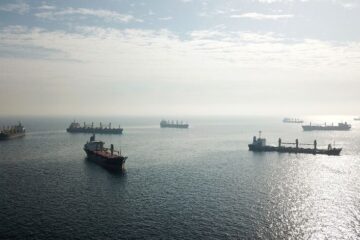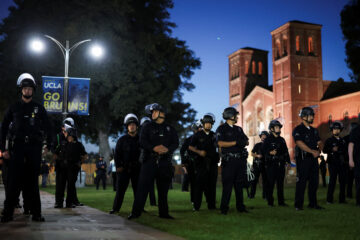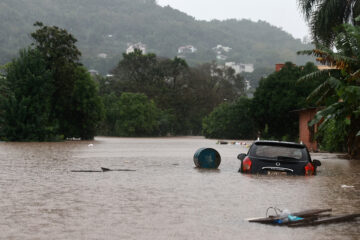Syrian chemical weapons destruction will take one year, Assad says
Syrian President Bashar al-Assad has pledged to destroy his stockpile of chemical arms but said it would take one year to do so and will cost about $1bn.
In an interview with Fox News, Assad promised to abide by a U.S.-Russia deal aimed at destroying the chemical stockpiles, but described the situation as "complicated," saying destruction of the weapons would cost about $1 billion and would take a year or "maybe a little more."
The disarmament plan, which is still being debated by U.N. Security Council envoys, requires Syria\’s government to turn over details of its chemical weapons by Saturday. Assad said he is willing to do this "tomorrow" and can provide experts access to the sites where the weapons are stored.
The Syrian leader also slammed a U.N. report issued this week that confirms sarin nerve gas was used in an attack against civilians in the rebel-held suburb of Ghouta on August 21. Although the report did not assign blame, the U.S. and other Western nations said it strongly suggested that government forces, not rebels, were responsible for the attack.
President Assad called the findings "unrealistic." He also expressed doubt about the authenticity of the large amounts of photos and videos purporting to show the aftermath of the attack, saying "there\’s a lot of forgery on the Internet." He said it is possible rebel forces had access to the sarin gas, a claim his government has repeatedly made.
Assad also insisted his government is not fighting a civil war, but waging a "new kind of war" against an infiltration of Islamist fighters from more than 80 countries. While he acknowledged the two-year uprising against him initially included non-extremists, he said that by the end of 2012 they had become the majority. He said "80 to 90 percent now consist of Al-Qaida and their offshoots."
The interview, which aired Wednesday, was conducted in Damascus by a Fox correspondent and former U.S. lawmaker Dennis Kucinich, who is now an analyst for the network. It is the second interview this month the Syrian leader has given to a U.S. television network.
During the interview, he appealed to U.S. President Barack Obama to refrain from military threats against his government, urging the U.S. leader to, in his words, "listen to the common sense of your people." Those comments appeared aimed at highlighting U.S. opinion polls showing strong public opposition to threatened military strikes to punish the Syrian government for the poison gas attack.
Russia claims to have received evidence from the Syrian regime implicating rebels in a deadly poison gas attack, as divisions re-emerged between Moscow and the West after a landmark deal to eliminate Syria\’s chemical weapons.
Deputy Foreign Minister Sergei Ryabkov also said Wednesday that Syria has provided new evidence revealing that rebels were the ones who carried out the deadly attack last month outside Damascus.
His remarks came a day after Russian Foreign Minister Sergei Lavrov also questioned the U.N. report, saying there are "serious grounds to believe" the incident was a provocation carried out by the rebel side.
Asked about the Russian criticisms, U.N. spokesman Martin Nesirky called the findings in the report "indisputable." He said "they speak for themselves and this was a thoroughly objective report on that specific incident."
Western countries and human rights groups said the findings, presented earlier this week, implicated the Syrian regime in using sarin for that attack. They cited the report\’s detailed annexes on the types of weapons used, their trajectories and the amount of gas they carried.
Despite their disagreement on the report, Russia, China, France, Britain and the United States have agreed to work toward a United Nations resolution governing the removal of Syria\’s chemical arsenal.
Sergey Lavrov, the Russian foreign minister, said the regime\’s evidence would be presented to the UN.
"There is a lot of (data) regarding the incidents that occurred in August in Ghouta near Damascus. We will be reviewing all of it in the Security Council."
The UN report, released on Monday, did not ascribe blame but detailed munitions and rockets used in the August 21 attack, their likely point of origin and their capacity. One missile used could hold 56 litres of sarin gas. As little as 0.5mg of sarin can kill an adult.
The US holds Assad responsible for the August 21 attack, which it says killed 1,429 people. The regime denies responsibility and its ally Russia maintains that there is no evidence implicating Assad.
The UN later said its conclusions were beyond questioning. "The findings in that report are indisputable," UN spokesman Martin Nesirky said. "They speak for themselves and this was a thoroughly objective report on that specific incident."
The Russia-US agreement is aimed at warding off the threat of US-led military action as retribution for the chemical attack.
More than 100,000 people have been killed in the conflict, and the UN refugee agency says about one third of Syria\’s pre-war population of 20.8 million have fled their homes, either to other countries or safer areas within Syria.
Source: Agencies
[do_widget_area inner_adsbar]











